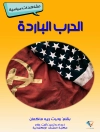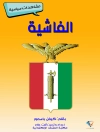This book presents one of the first studies of the Renaissance
notion of conscience, through examining theological manuals, legal
treatises, letters and other sources of the period.
* Represents one of the few modern studies exploring developments
in scholastic and Renaissance notions of conscience
* Synthesizes literary, theological and historical
approaches
* Presents case studies from England and the Hispanic World that
reveal shared traditions, strategies, and conclusions regarding
moral uncertainty
* Sheds new light on the crises of conscience of ordinary people,
as well as prominent individuals such as Thomas More
* Offers new research on the ways practical theologians in
England, Spain, and France participated in political debate and
interacted with secular counsellors and princes
สารบัญ
Notes on contributors ix
Introduction (Harald E. Braun and Edward
Vallance) 1
1 Jean Gerson, moral certainty and the Renaissance of ancient
Scepticism (Rudolf Schüssler) 11
2 Conscience and the law in Thomas More (Brian
Cummings) 29
3 ‘Guided By God’ beyond the Chilean frontier: the travelling
early modern European conscience (Andrew
Redden) 52
4 Shakespeare’s open consciences (Christopher
Tilmouth) 67
5 Women’s letters, literature and conscience in
sixteenth-century England (James Daybell)
82
6 The dangers of prudence: salus populi suprema lex, Robert
Sanderson, and the ‘Case of the Liturgy’ (Edward
Vallance) 100
7 The Bible, reason of state, and the royal conscience: Juan
Márquez’s El governador
christiano (Harald E. Braun) 118
8 Spin doctor of conscience? The royal confessor and the
Christian prince (Nicole Reinhardt) 134
Index 157
เกี่ยวกับผู้แต่ง
Harald E. Braun is Lecturer in European History (1300-1700)
at the University of Liverpool. His publications include Juan de
Mariana SJ (1535-1624) and Early Modern Spanish Political
Thought (2007).
Edward Vallance is Reader in Early Modern History at
London’s Roehampton University. His most recent publication is A
Radical History of Britain: Visionaries, Rebels and
Revolutionaries, the Men and Women Who Fought for Our Freedoms
(2009).












